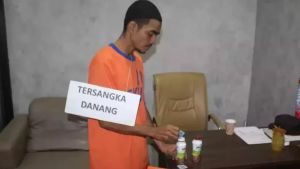JAKARTA - Flatulence is a health problem that most often occurs in children. Bloating can be caused by various factors. For example, eating foods that trigger a lot of gas in the stomach, the habit of chewing quickly, to the habit of children who like to eat while watching TV or other activities.
These factors can cause air or gas to be trapped in the digestive system of the little one so that the child's stomach becomes prone to bloating. Even so, you don't need to panic, huh. Because there are several solutions to treat flatulence that can be practiced at home.
Set Portions and Types of Food and BeveragesIf you don't want your child's stomach to be bloated, make sure as much as possible avoid eating too many types of foods that can trigger excess gas in the stomach such as cabbage or tubers. Usually lactose intolerance or cow's milk protein allergy in children can also cause flatulence. Well, if signs of bloating appear after the child drinks cow's milk, immediately visit the nearest doctor for a consultation.
Set the Right Eating PositionTell your little one not to eat while running or sleeping. It's best to teach him to sit up straight while eating as this can prevent flatulence. If the child is still breastfeeding, pay attention to his position. Try to keep the head elevated and pat the child on the back to burp after feeding.
Change Your Child's Eating HabitsSmall children are quite happy to explore how to chew. Teach your little one to chew food slowly because chewing too fast can cause wind to enter the mouth so that the stomach becomes bloated.
Kids Body MassageIf the child's stomach is already bloated? Perform light massage on the chest, stomach, back, and soles of the child's feet with eucalyptus oil or telon oil. Give warm water to the child as often as possible and wear warm clothes to the child. The goal is that the gas can come out a little through sweat.
Indeed, most of the conditions of flatulence in children are not dangerous. But if the child continues to be fussy and is followed by other symptoms such as nausea, vomiting, loss of appetite, and weight loss, then it is better to consult a doctor immediately.
The English, Chinese, Japanese, Arabic, and French versions are automatically generated by the AI. So there may still be inaccuracies in translating, please always see Indonesian as our main language. (system supported by DigitalSiber.id)













